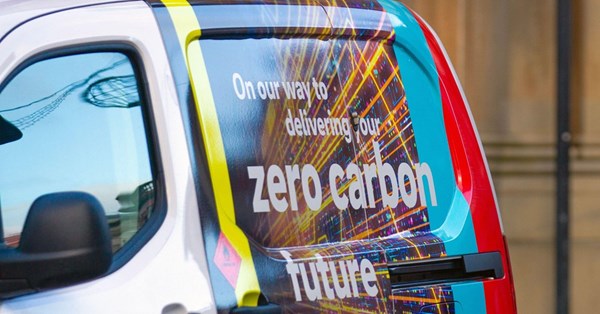THE Church of England has “an exceptionally challenging target set by General Synod of achieving net zero by 2030”, the Bishop of Southwark, the Rt Revd Christopher Chessun, has said.
Speaking in in the House of Lords last week, in a debate on the affordability of the target of net-zero emissions, he explained how “the national Church has ring-fenced £190 million to support its churches and clergy housing towards this goal” and drew attention to diocesan initiatives that were, he said, bringing results.
Investment in the green-energy sector, including jobs, would “mitigate the otherwise fearful future ahead of us”, he said, “if we pursue net zero by 2050 with the spirit, ingenuity, and imagination at our command, and cherish the creation given us”.
He concluded: “The challenges of net zero are hard, but they are not unaffordable. The price of hesitation, though, will be irreversible. The time is now.”
Lord Offord (Conservative), who introduced the debate, said: “The stark reality is that the UK cannot become self-reliant with the most expensive energy.” For him, the issue was about energy independence: “In 2025, we remain stubbornly dependent on hydrocarbons for 72 per cent of our energy needs, with 40 per cent imported . . . our 20-year experiment with renewables, mostly windmills and solar, has failed.”
He described Net Zero 2050 as “a straitjacket that is preventing the UK from resuming our place in this modern world as an industrial, technological, and military powerhouse. . . it is neither practical nor affordable”.
Countering this, a former Energy Secretary and the chairman of COP26, Lord Sharma (Conservative), said that “countries and businesses recognise that the drive to net zero offers enormous economic opportunities for jobs, growth, and inward investment”. Lord Turner (Crossbench) agreed that “the reasonable estimates of the cost of getting to net zero have relentlessly come down, not gone up.”
Baroness Jones (Green Party) said: “Climate chaos will hit our economy hard, whether we reach net zero or not. . . Our economy is part of a global economy, and when parts of that international trade start to collapse, there will be far bigger impacts than Donald Trump’s tariffs.” She was keen to see “an end to government by cheque book” with the “vested interests” of donors and lobbyists.
A former Lords Speaker, Baroness Hayman (cross-bench), who chairs Peers for the Planet, commented that “calling a halt to progress is not a neutral or cost-free option”. She said that no one doubted the aim “to reach net zero by 2050 will cost a lot of money. . . There is no denying that there will be real technical and capacity challenges. . . Nothing has changed the imperative of the transition; it has become only more urgent.”
Responding officially, Lord Hunt (Labour) said: “The response of the Government is not only that we can afford our net-zero ambitions, but that we must — and that we have to drive this as quickly as we possibly can.”
The answer to energy security was, he said, “to speed up the transition away from fossil fuels and towards home-grown clean energy”. He saw everything “not as a cost, but as an investment in the future. . . We should surely turn this around and see the transition to net zero as the economic opportunity of the 21st century for this country. We have huge opportunities here.”
Before commending the motion, which was agreed, Lord Offord said that “2025 is 25 years away from Net Zero 2050; so this is a good time to reassess the plan in the light of reality and to re-evaluate our energy strategy, with the simple objective that we must make it affordable and secure.”















